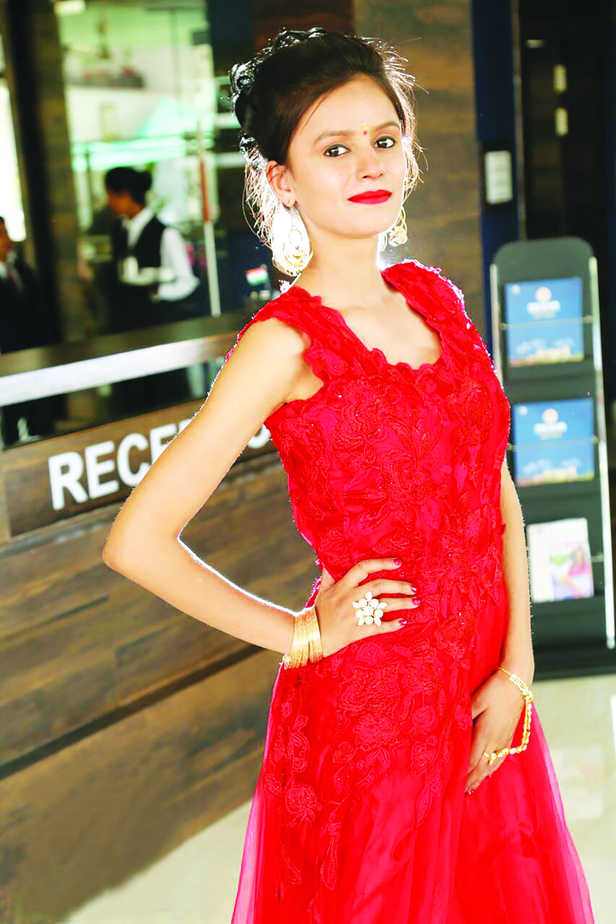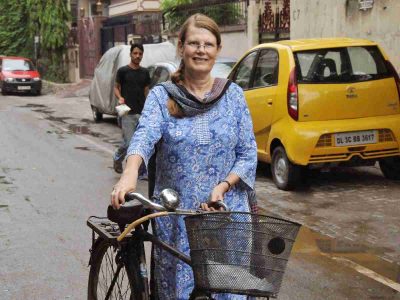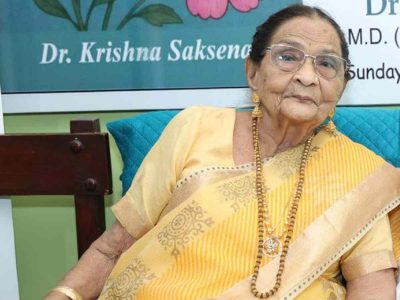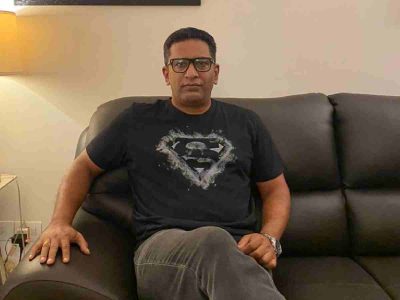Spunky and unstoppable, Deshna Jain, India’s contestant at the Deaf International pageant in Taiwan will make her presence felt without being able to speak a word
“I want to make my country proud and show the world that it has enormous amount of talented people,” exclaims Deshna Jain, a 20-year-old girl when asked for a reason for participating in the Miss & Mister Deaf International pageant.
Born in a town called Tikamgarh in Madhya Pradesh on April 9, 1997, Deshna by birth did not have the ability to either speak or hear. But she didn’t let that become an impediment in her journey and set out to make everything she dreamt of possible in every way she could.
She won the prestigious title of Miss India Deaf at the 7th Miss Deaf India which happened early this year on February 25. This paved the way for her representing India at the Miss and Mister Deaf International contest happening in Taiwan on July 8-16.
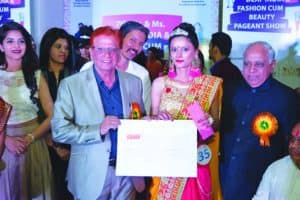
“I cannot forget the moment when everybody started clapping and I got to know that it’s me who won it. I couldn’t hear the applause but I felt it on so many levels,” says Deshna after winning the contest.
Before winning the title of Miss India Deaf, Deshna won two previous such kind of competitions, one in February of 2018 — Miss MP (Madhya Pradesh) Deaf and another one in November 2016. The competition which is called Miss Antriksh in Indore, had 70 participants — including those without hearing impairment.
Deshna’s elder brother Diva Jain too has hearing and speech impairments which her parents Divya Jain, 46, and Devendra Jain, 54, got to know after an auditory screening.
Recalling the moment she was born, her mother says, “Although the doctors gave us assurance that the second child will not have such an issue, God had something else planned for us. But it wasn’t at all a sad moment. We were quite happy and thanked God for blessing us with a baby girl.”
Speaking of Deshna as an infant, her mother gleefully says she was very strong and a fast learner. Although she was the younger child, she started learning to walk before her brother and made him learn too along with her.
She was sent to Asha Niketan, a senior secondary school in Bhopal, where she stayed in a hostel. Her parents say it was a distressing time for them and Deshna when she was sent away, as Tikamgarh did not have good schools, and they wanted her formal learning to be at the same standard as any other child, the decision was made.
“I remember the time when we used to go to meet her at the school. Even though she couldn’t hear, she used to feel that somebody close to her had come to visit and she used to come running to the class window,” says her mother.
It might be some sixth sense and probably that’s why people like Deshna are called differently abled; special powers come as a helping hand. Maybe that’s why Deshna started dancing at the age of five. “I used to count the steps, and made sure that I don’t miss a step and the coordination is smooth,” says Deshna.
During her time at the school, she was a keen participant in different co-curricular activities and won many inter-state competitions. She was particularly devoted to painting and dance practice.
Hardships also came her way, as teachers in the school didn’t know much of sign language, and sometimes it was hard to communicate with Deshna, but somehow the conversations happened. Deshna speaks highly of the school environment and how she met some really supportive people, whom she calls friends.
As with any other school, there always are a few students who mock those who are differently abled and Deshna too faced similar instances. “I did face a little mocking but I didn’t let it affect me much and eventually those kids stopped,” says Deshna.
After completing her senior secondary schooling, Deshna joined Indore Bilingual Academy in August 2016 to pursue a Bachelor’s degree in Arts and Information Technology.
Soon after going to Indore, Deshna started developing interest in modelling, and her institute too helped in every way possible. She gives the credit to her peers and friends who motivated her to pursue her interests and she did.
Today if you ask her about her future plans, a straight answer comes up: “To live a free and happy life in which society has no patriarchal notions”.
She strongly believes that women, especially with girls with hearing impairment, should not let anybody restrict them to live in the four walls of their homes. She wants them to chase their dreams and pursue courses they like.
Deshna also gave an example of how girls with hearing or speech impairment don’t go for college education, or go into limbo after they’re done with their schooling. She also strongly condemns cochlear implant which many parents go for as soon as they get to know about their kid’s hearing impairment, but Deshna says there are high chances of the patient’s face getting paralysed if an injury occurs during the operation.
Sign language is not very well known among people, and one only tries to learn if their kid is having speech or hearing impairment. This, according to Deshna, should not be the case. It should be normalised and some efforts should be made to understand the hardships differently abled people go through. She also commends her friend and neighbour Khushboo who made efforts to learn sign language so that she could communicate with Deshna better.
Because she sometimes is not able to convey her thoughts better, it leads to anxiety, and there have been events in the past where she fell sick for days because of anxiety.
Temper is another thing Deshna deals with on a regular basis. “I get angry quite fast if somebody tries to stop me from doing something. Though later I try to understand their point. It’s something I’m working on and I try my best to keep my anger under control,” says Deshna.
As the countdown to the competition begins, Deshna is undergoing rigorous training and refining her ramp modeling techniques, general knowledge and working on her personality.
Talking about how differently abled people are not facilitated by the government, she says, “If it was for a girl who was normal according to societal norms, the government would’ve given her their support and even paid for her expenses for the contest, but since it’s me nobody came out with any support.”
“We reached out to the state government officials and even the chief minister of Madhya Pradesh but no form of financial support has been given to us. They should at least pay for the international sign language interpreter accompanying Deshna to Taiwan,” says Deshna’s mother.
Deshna recalls how miserable and excluded she felt when other runners-up from previous contests got modeling offers for advertisements whereas no offer knocked on her door.
Speaking of her future plans, Deshna says she wants to study at Gallaudet University, a federal private university for people with speech and hearing impairment in Washington, DC.
After that, she intends to return to India, and aspires to help underprivileged kids with speech or hearing impairment, and she also expects the government to support her in her cause.
In future she also wants to travel the world, and experience and talk to people hailing from different cultures.

